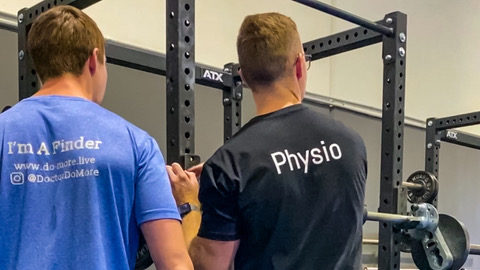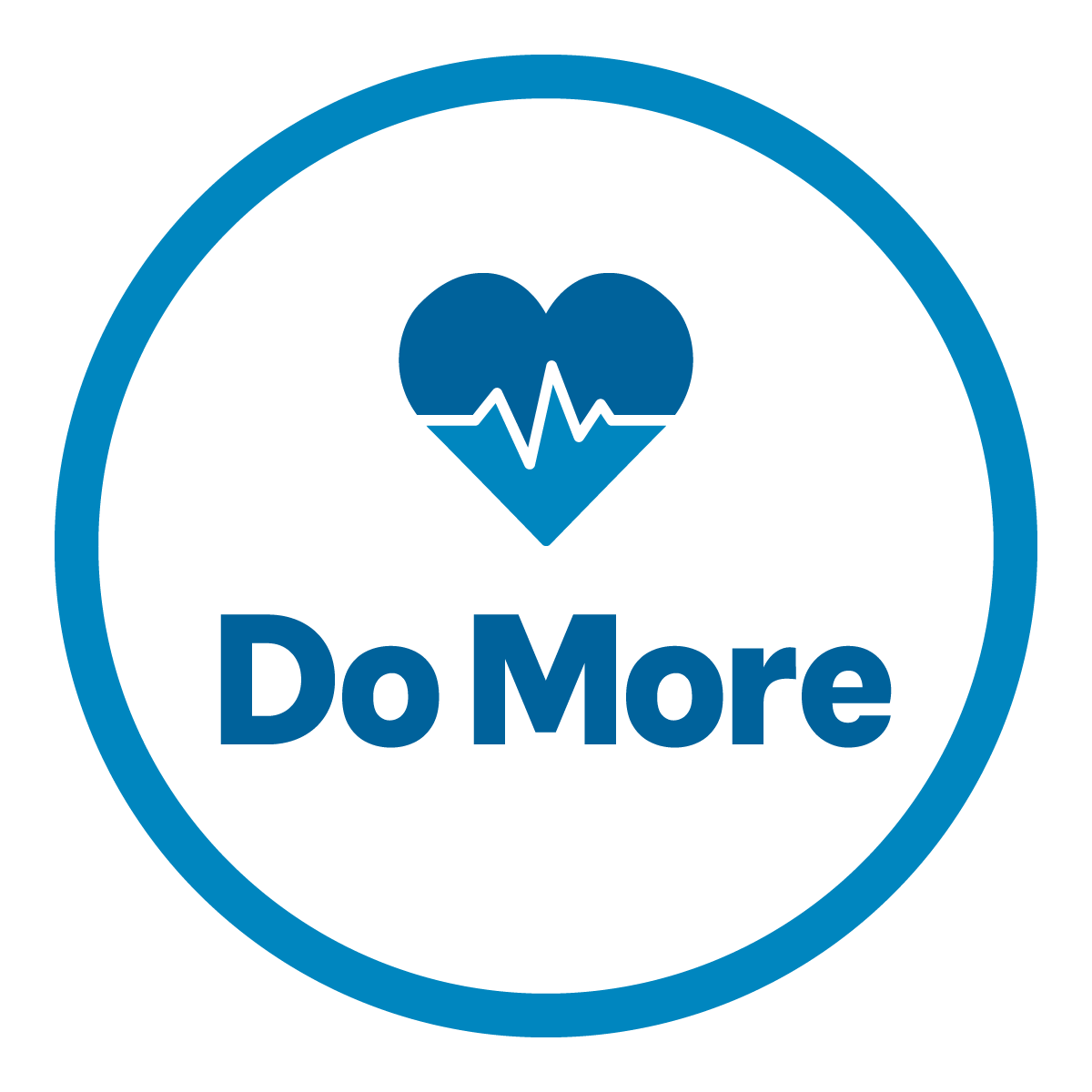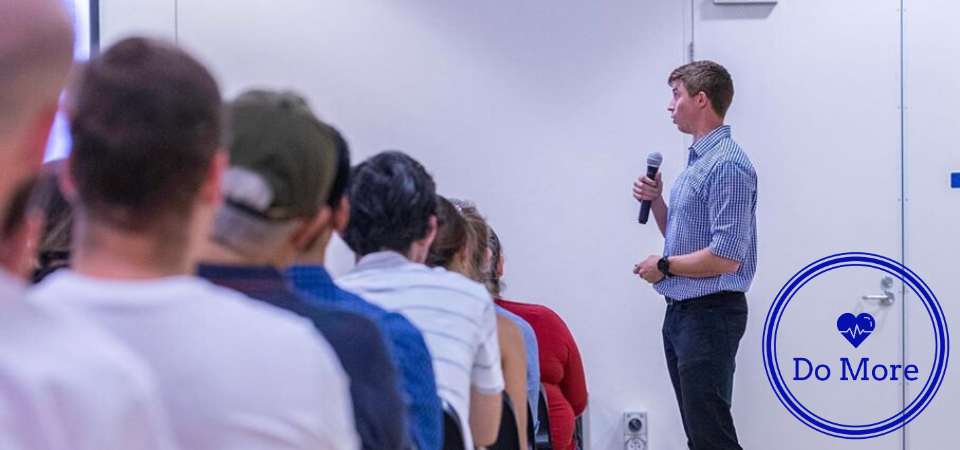Meet Your Support Team
Stop trying to do it on your own. Whether it’s smoking cessation, working towards a healthy weight, reducing alcohol intake or, my favourite, increasing the level of physical activity. For every change I talk about with patients, I’ll ask “What support do you have with this?”
In this article we’ll talk about what help is available and how you might be standing in your own way.
Seeking Help
It’s a scary thought to seek the help of a professional, even a friend. Not only does it require us to admit to ourselves we want to change but we then must admit it to someone else. We often feel that it’s a sign of weakness requiring the help of a professional and for that I’ll ask, “Why do it alone?”. If you quit smoking on your own versus with the help of nicotine patches and counselling…you still quit smoking! There’s no reward for doing it the hard way, there’s simply a much greater chance you’ll not succeed.
“Alone we can do so little, together we can do so much”
Helen Keller
You’re first step is to write down what you want to change, make it specific and start small. If it’s exercise-related, have a look at last month’s article “How To Start”

Who’s here to help?
We’re spoilt for choice when it comes to people who have committed their careers to helping others. Cutting through the noise of self-proclaimed ‘life coaches’ and knowing who the right people are, is a challenge unfortunately. Some tips to identify a “good’un”:
- They will not promise quick results.
(e.g. 6 week abs, weight-loss miracles)
- They will have credible qualifications from institutions that you should be able to verify.
- They will often work beneath a governing body.
(e.g. Exercise & Sport Science Australia, Australian Health Practitioner Regulatory Agency)
- They will direct you to other professionals if the support you need is outside of their scope.
Take a look at the appendix at the end of this article “Your Support Crew” to see who might help.
Overcoming barriers to get help
Armed with the knowledge of who can support you to reach your health goals, you may still face the barriers of professional availability, wait times and importantly, cost.
Some quick tips:
- Ask your GP who they recommend for a particular area of health, whether it’s “Do you know any psychologists that you’d recommend?” or “I’m looking to get help moving more, are there any Exercise Physiologists or Personal Trainers that you could recommend?”
- Discuss a ‘Chronic Disease Management’ plan (previously ‘Enhance Primary Care’ plan) to have subsidised allied health appointments. These are often used for patients with long-term illnesses such as Diabetes.
- Ask your GP about a Mental Health Treatment Plan, if appropriate, this entitles you to Medicare rebates for up to 20 individual psychological appointments each year.
- If none of the above options are available, you can always discuss financial options with the healthcare professional you’re planning to see.

Summary
- If you want to go fast, go alone. If you want to go far, go together. Recruiting the help of professionals to help you reach your health goals can set you up for success rather than repeat the same old cycle.
- Identify your goal, identify your support team, ask for directions then start slowly.
- Discuss options with your GP as a first port of call: who might be able to help and whether there are treatment plans available to reduce costs.
Disclaimer
The information and opinions expressed in this article are my own and not the advice of a local health district or governing body. Information has been collected from reputable sources at the time of writing. Always seek the guidance of your doctor with any questions regarding your own health or a medical condition.
By Dr Ash Bowden – For more information on keeping active visit https://do-more.live
Facebook: Dr Ash Bowden | Instagram: @doctordomore
Your Support Crew – An Appendix of Healthcare/Health-related Professionals
Please note that this is not an exhaustive list but may be helpful to identify which professionals are available to help with your health goals.
| Health-related professionals | Their role | How they can help your health |
| Doctor | To help maintain and restore health through the practice of medicine. They talk to patients, examine them, diagnose illnesses/injury, present treatment options and counsel patients on their health. Doctors can specialise in a variety of aspects of health from mental illness to emergency medicine to public health. A General Practitioner (GP) is a type of doctor whose role is to treat common medical conditions and refer patients to medical services for urgent and/or specialist treatment. | If in doubt, an appointment with your GP to discuss your health needs/goals is a great place to start. GPs are often called the gatekeepers of medicine as they can help identify your health needs and direct you on to more specialist services. A GP can also create care plans which will help reduce the cost of an allied healthcare professional’s input. |
| Nurse | A caregiver for patients to help manage physical needs, prevent illness, and treat health conditions. Nurses often work in a healthcare setting (e.g. hospital, age-care facility, clinics) and can have a variety of specialist areas e.g. community, wound care, diabetes etc | A nurse will often only need to be involved in your healthcare for the ongoing treatment of longer-term conditions such as diabetes, wound care, or at-home care needs. These healthcare heroes are the backbone of hospital-based healthcare and will be the most involved with a patient during their hospital stay. |
| Paramedic | Provide care and treatment to patients who have been involved in accidents, emergencies, or other crises. | Hopefully you don’t need the help of a paramedic but if you’re facing an emergency call 000. If in doubt as to the urgency of your health problem, you can contact ‘Healthdirect’ on 1800 022 222 |
| Pharmacist | To uphold the safe and effective use of medicines. They can provide advice to healthcare professionals or patients on the use and preparation of medications. | Given the increasing use of medicines in developing countries, a pharmacist’s role is incredibly valuable. If you have questions about your medications, their use or side effects, a pharmacist is a fantastic person to ask. You’ll find one at your local chemist. |
| Dietitian | Provide guidance about how to appropriately manage diets and nutrition for people who may be affected by health conditions such as diabetes, overweight, cancers, heart or kidney disease, food intolerances and allergies and gastro-intestinal diseases. | Gaining a better insight into your nutrition can help massively. There is a huge amount of misinformation pertaining to ‘diets’ with foods being labelled as good or bad all too often. A better understanding of our diet can help work towards a healthy weight as well as manage chronic diseases more easily. |
| Podiatrist | Help people to manage ulcers, complications relating to diabetes affecting the feet and elderly patients to reduce their risk of falling. | A niche area of healthcare but for all things feet a podiatrist can be an invaluable healthcare professional. |
| Psychologist | A broad range of professionals providing psychological interventions including ‘talking therapies’, cognitive-behavioural therapy, and psychodynamic therapy. Broadly speaking they provide assessment and therapy to clients, facilitate organisation or social change, conduct research and/or administer psychological tests on individuals/groups. | With mental health a crucial aspect of our overall wellbeing, a psychologist can help with stress management, low self-esteem and poor health behaviours (e.g. alcohol, smoking or drug use). A psychologist can also help to better manage depression, anxiety, post-traumatic stress disorder and eating disorders among other things |
| Social Worker | Support people to make change in their lives to improve their personal and social well-being. This can include housing issues, domestic violence, bereavements, parenting issues, disability, and mental health. | Social workers are helpful with complex issues relating to family dynamics, mental illness, and housing. They will often be involved alongside other healthcare professionals when these issues are identified. |
| Physiotherapist | Work with people of all ages to treat a broad range of conditions relating to movement of the human body including sports injuries, arthritis, problems with breathing, recovery from stroke and more. | Physiotherapists are experts when it comes to musculoskeletal problems but are often undervalued when it comes to improving function and reducing pain in long-term illnesses like osteoarthritis, low back pain or even neurological disorders like Parkinson’s disease. |
| Accredited Exercise Physiologist (AEP) | Providing exercise-based interventions for people with a broad range of health issues. | AEPs can help patients to move more when there are medical barriers that may limit them from using mainstream exercise-facilities without guidance. Given how effective exercise is at improving health, this intervention can have a fantastic impact. |
| Dentist | Can assess, diagnose, and provide treatment of diseases, injuries and abnormalities of teeth and gums. | Oral hygiene and reducing dental pain are key benefits to seeing your dentist. They may even be able to improve your confidence when it comes to your smile. |
| Chiropractor | To diagnose and offer treatment for back pain and musculoskeletal disorders. | Chiropractors can be a useful addition when managing longer-term musculoskeletal issues such as back pain, mobility or osteoarthritis. |
| Personal Trainer | Assess their clients’ strengths and barriers and create exercise plans to improve overall health in clients without significant medical problems. | PTs can be an incredible benefit to help motivate people as well as guide them to a more active lifestyle. They can often give advice on nutrition and exercise however there is an immense variation in knowledge and ability within the industry. |
| Occupational Therapist | Assess functional limitations of people resulting from illnesses and disability and provide therapies to help them perform daily activities. | An OT is fantastic for help on home and work alterations to improve your level of function. OTs can help to educate individuals and family members too. |
| Counsellor | A person to talk through your difficulties with to help you to make the changes you’d want to. | If you’re struggling with issues like relationships, money or bereavements a counsellor might help you to cope and move on through life. |







